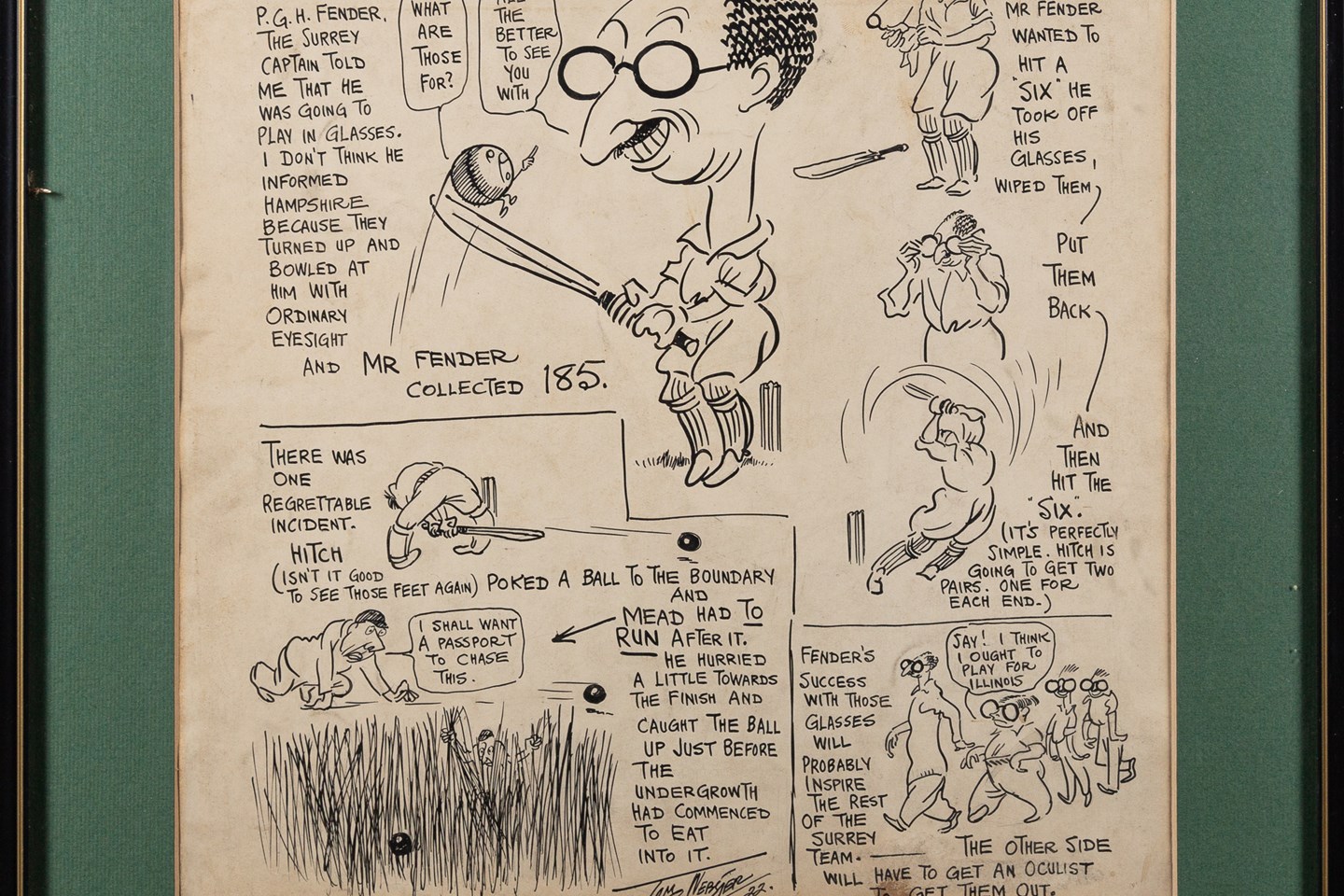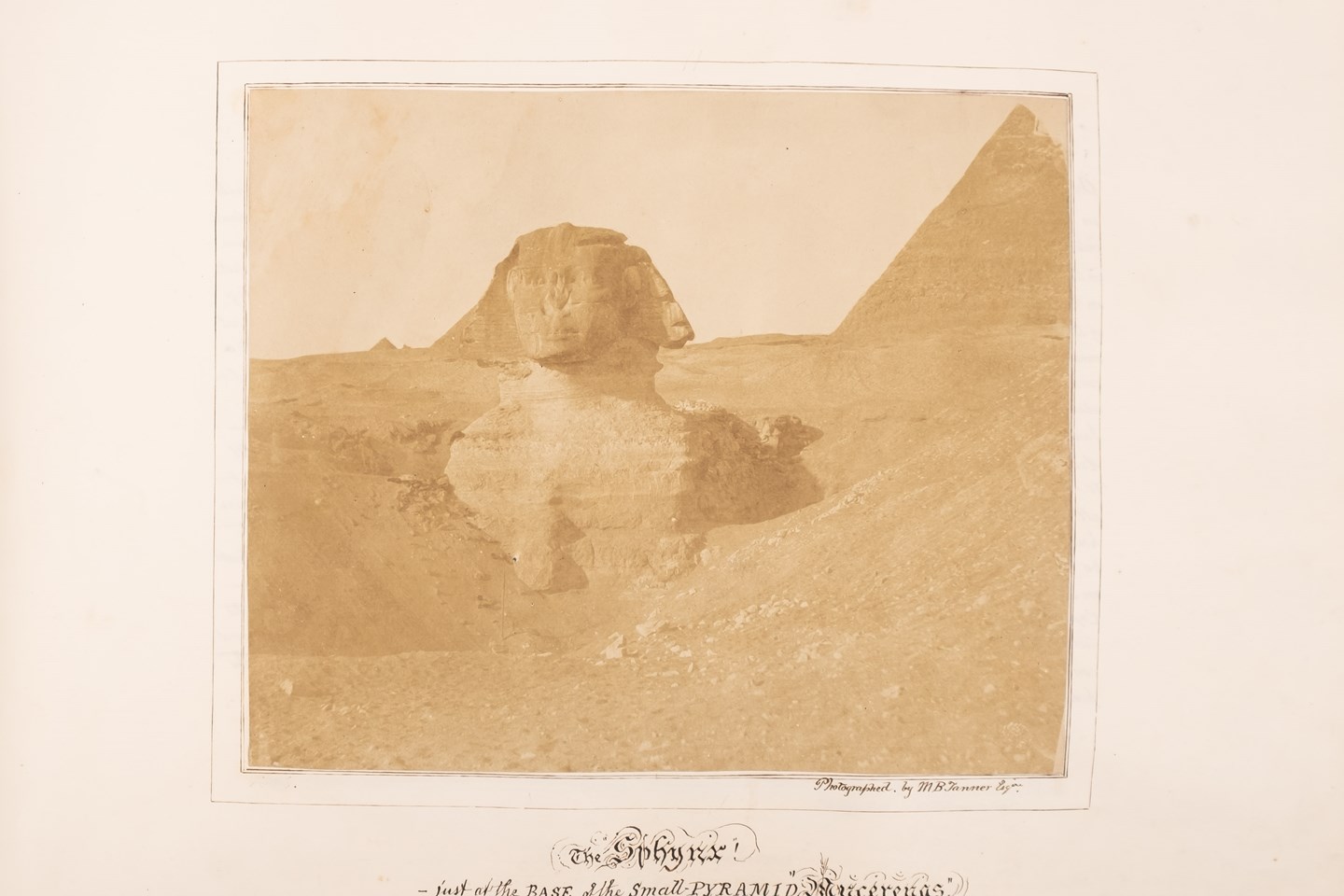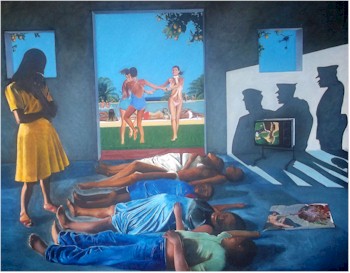
Apartied by artist Bill Mitchell (1934-2013) carries a pre-sale estimate of £200-£400 in Sale EX107 on 29th July 2014 in Exeter.
Bill Mitchell was born in Manchester to a hard-working Catholic family. The War, his upbringing and insecurities meant by his own admission he left school barely able to write his own name. At 15 he was sent to get a 'trade' and was apprenticed to a tailor.
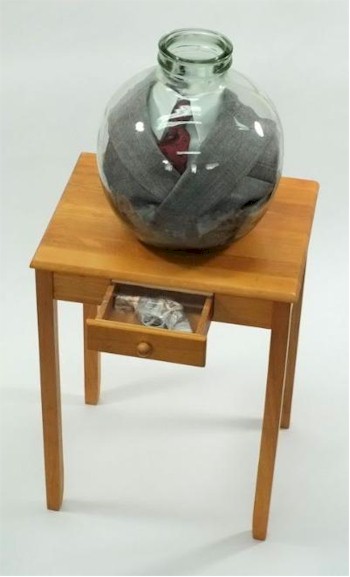
Gun Money (EX107/146) - An artwork by Bill Mitchell (1934-2013), which is being offered in Sale EX107 on 29th July 2014 in Exeter.
Encouraged by his friends he went New Haven in Connecticut where he supported himself tailoring for Gants Shirt Manufacturers, but more importantly he engaged in the lively art scene that had grown-up around Yale University and New York.
Mitchell enrolled in evening art classes and was much encouraged by his tutor. The sudden illness and death of his mother brought Mitchell back to England where he was now confident enough to apply to Art School as a mature student and, after gaining A levels, he began a Foundation Art Course at Stockport College of Art.
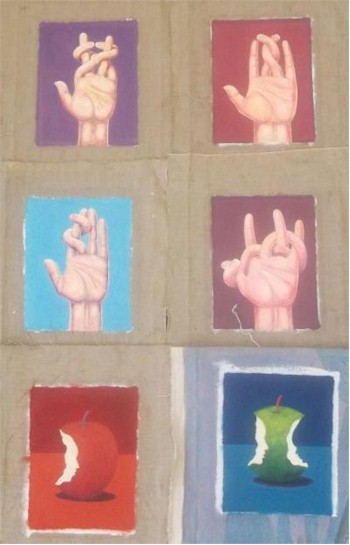
A large portfolio of Bill Mitchell's work (EX107/145), including pencil drawings, oil paintings and prints, is included in the sale.
There followed a successful and productive three years at Falmouth College of Art (now the Falmouth Institute) from 1966-69 and he was awarded a place at Goldsmiths London on a postgraduate course in 1969. This was an introduction to the art scene in the capital, especially the Installation and Performance Art movements, with Joseph Beuys and Cornelius Cordeu becoming particularly influential.
Mitchell moved to the West Country, took a teaching job at Knowles Hill School, Newton Abbot, Devon (now Newton Abbot College) and continued developing his work and ideas through a whole range of mediums and disciplines including tailored canvases, toast sculptures, printed books and performance art with world affairs, war, equality and politics his major influences.
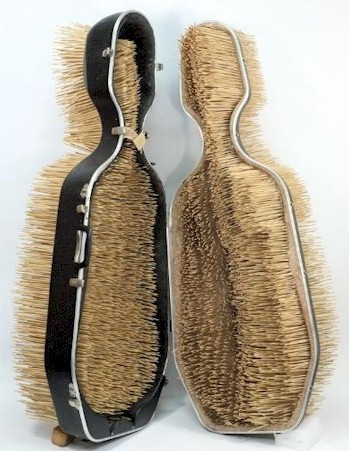
What does it mean to you? (EX107/147) Artwork by Bill Mitchell (1934-2013), which carries an estimate of £50-£150 in Sale EX107 on 29th July 2014 in Exeter.
Appalled at Tony Blair's stance on the War in Iraq he took part in the London Peace March in 2003. The international arms trade, international politics, corruption and abuse by multi-national companies concerned Mitchell greatly and many of his later pieces relate to these core themes. The juxtaposition of the banality of celebrity glamour with poverty, brutality and the misuse of power were all stimuli. Images from the Vietnam War to 21st Century conflict permeate his work.
Large abstract canvasses from the 1970s became more figurative in the 1980s when there was an exhibition at Dartington, and by the time of his death Mitchell had become an interesting, versatile, established and popular West Country artist.
Mitchell's cottage in Torquay was full of artworks which took many forms with the themes of War, Poverty, Greed, Displacement and Modern Politics much to the fore.
In our Antiques and Collectables Sale (EX107) in Exeter on Tuesday, 29th July 2014 there are three artworks and a large folio group of drawings by Bill Mitchell. Two of the artworks are sculptural and include a cello case (EX107/147) and a pistol (EX107/146), each estimated at £50-£150, and one is an oil on canvas titled Apartied (EX107/144), which has an estimate of £200-£400.
- Bearnes Hampton & Littlewood
- Bill Mitchell (1934-2013)







